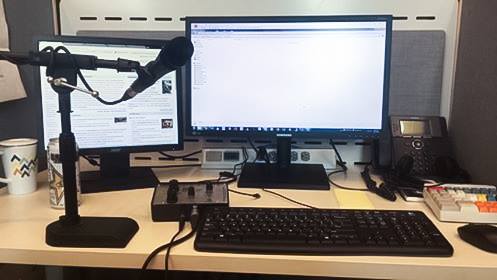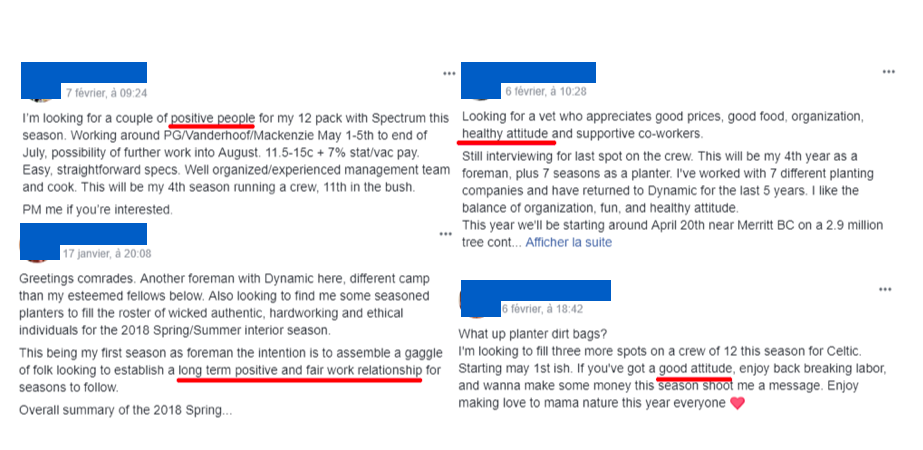Union under the radar
The visible successes
When talking about unions, whether the IWW or elsewhere, it is generally thought to large visible banners. With us, names that strike most as success stories are probably the Starbuck’s Workers Union which put the IWW on the map in the early 2000 or the recent campaigns by the Union of Workers of Frite Alors and that of Workers in the voluntary education environment, both affiliated with the Montreal Local.
The tip of the iceberg union
But if this was only the tip of the iceberg? In organizational training 101, it leads us to discuss and debate the most inclusive definition it would be possible to give a union. After attending three times as participant and 5 both as trainer, I can guarantee you that almost every time we come to the same answer : a union is when two workers or workers or more join forces to improve their working conditions and those of their colleagues.
Looking at the side of the Union of Workers of Frite Alors Rachel Street, for example, we note that industrial action began long before the S-word is pronounced. By spring they and they put forward collective action to qualify for air conditioning in the restaurant, a request which was followed by some actions, then by new claims.
Recently, Combat Trade Union published an article about employee-es of the 3D animation industry who have managed to substantially improve their working conditions, but the editorial team might also have to look at many other local examples. The employee-es of the delivery industry who have managed to obtain better tools to work and a salary increase 20 %, the employee-es of health that have managed to limit the damage of the Lean model at their facility, es employee of the restaurant who got pay raises and repairing many of their tools, es employee of a call center who got them and also a raise.. These are examples of a successful solidarity and mostly nevertheless remained in the shadows. They are the result of the union of concerned es workers, many hours meeting requiring the participation of all and each, and often several actions, short of union action in due form!
In the field
Another example to which it is possible to rotate is that of Stardust Family United (SFU) At New York. Although their union, whose existence was made public in August faced a monster repression, we can see two things. The first is that despite the dozens of dismissals that followed the public release of SFU, this is only the visible part of the union were dismissed. If it kept up the pressure by holding daily picket lines after day, other Workers at Stardust, on their side, continued to work under the radar and go for many gains. Moreover, we learned recently that two veterans and returning players to the campaign of New York-based organization continued to operate elsewhere. Es forced to desert the picket lines to find other work, headings entre elles of society in a manson refus de signer une nouvelle politique de disciplines here is draconian littéralement, while the other coordinated a kind of rotating operation on the boss, about credit card stolen and left tips for waiters and waitresses. The victory was immediate. At the IWW, we often than not say the workplace that we organize, but soon the workers directly. One of the main objectives behind our organizing campaigns is to create more and more organizers organizers who will lead the fight on their current workplace like any other and that they will cross over their life.
public release or no public release?
There is something very media, very glamorous to make a public appearance, but this is not the only way to organize as a union and win as a union. Help colleagues to become fully aware of the power that our boss has on our lives, then bring them to realize all the strength he can have when we unite, then take the necessary actions, it is a victory in either! These are examples of workers and workers who have empoweré es, have seen their working conditions improve and are equipped es to be able to start to fight or they and they are! In a word : of Unionism.
Mathieu Stakh


 Captionists and sub-office printers working for the telecommunications giant Ericsson, which produces subtitles for broadcasting in Canada and the UK, have seen
Captionists and sub-office printers working for the telecommunications giant Ericsson, which produces subtitles for broadcasting in Canada and the UK, have seen  Different deaf and hearing communities of Canada deserve better subtitles created by workers fatigué.e.s, affamé.e.s and lésé.e.s.
Different deaf and hearing communities of Canada deserve better subtitles created by workers fatigué.e.s, affamé.e.s and lésé.e.s.


